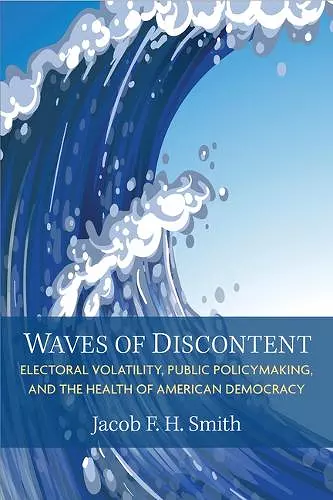Waves of Discontent
Electoral Volatility, Public Policymaking, and the Health of American Democracy
Format:Hardback
Publisher:The University of Michigan Press
Publishing:21st Aug '25
£68.95
This title is due to be published on 21st August, and will be despatched as soon as possible.
This hardback is available in another edition too:
- Paperback£24.95(9780472057801)

After a period of relative calm in congressional elections prior to 2006, America has experienced a series of highly competitive, volatile national elections. Since then, at least one of the US House, US Senate, and presidency have flipped party control—often with a large House or Senate seat swing—with the exception of the 2012 election. In Waves of Discontent, Jacob F.H. Smith argues that a pervasive feeling of displeasure in the American public has caused this increase in electoral volatility.
Conducting statistical analyses of a wide array of surveys, Smith found that these feelings of displeasure translate to lower turnout among voters from the president’s party and a higher percentage of independents voting for the other party. Subsequently, he conducted a content analysis of New York Times articles to look at the connection between unrest in American society and seat swings in congressional elections, even before the existence of polling. Examining the consequences of volatility in congressional elections reveals that political amateurs are more likely to win in wave years than in normal years. Based on this data, Smith presents a new theory about the policy process—the policy doom loop—in which frustration among voters at both the inability of Congress to pass policy and anger at policies that actually do pass results in even more churn in congressional elections. Waves of Discontent offers some suggestions to promote constructive policymaking efforts in Washington to reduce frustration in the electorate.
ISBN: 9780472077809
Dimensions: unknown
Weight: unknown
200 pages